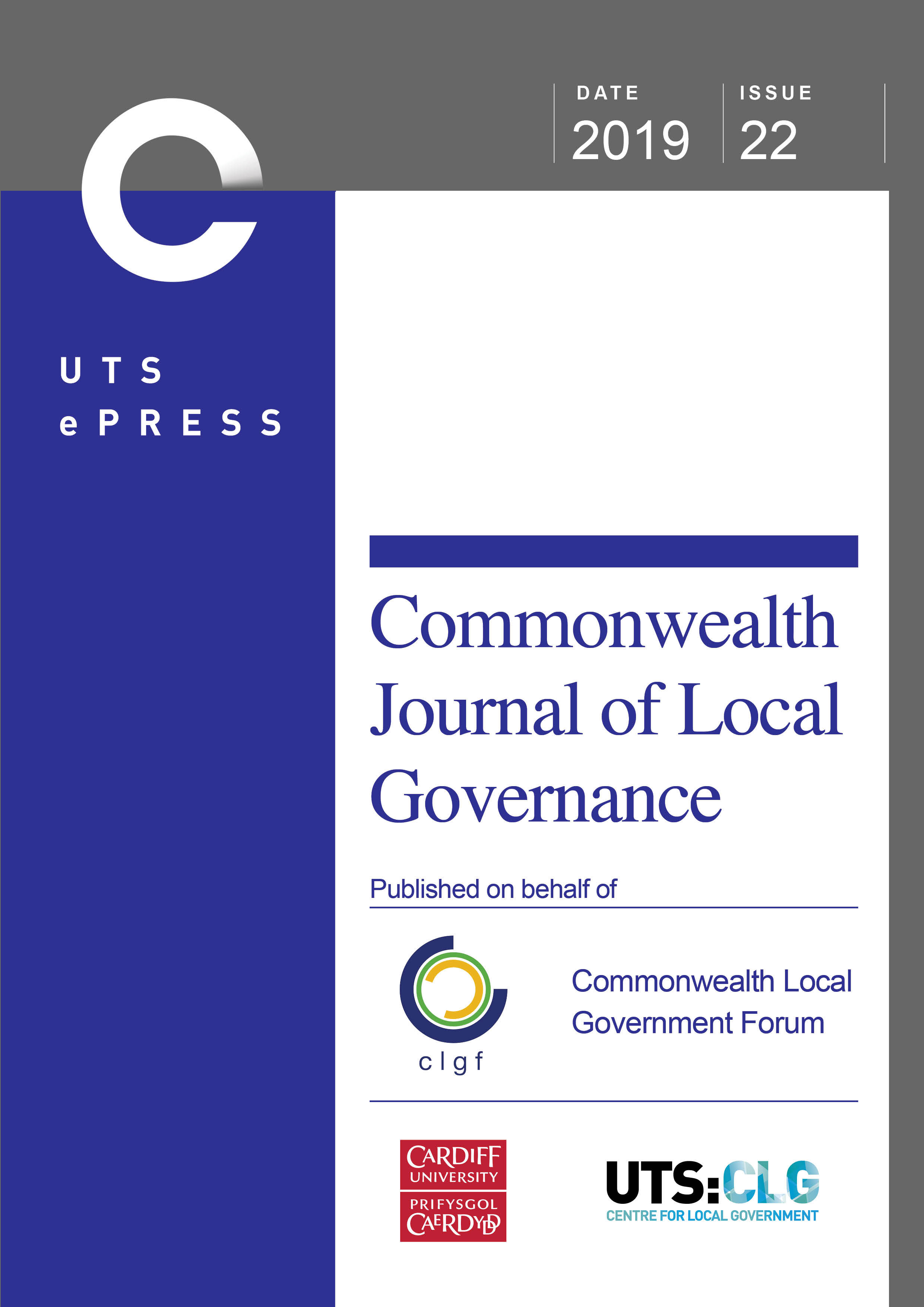Not quite what’s on paper? Comparison between theoretical and actual information-sharing networks in the Ugandan rural water service sector
Main Article Content
Abstract
Under Uganda’s decentralised system, rural water service delivery remains to some extent problematic. Several studies attribute the possible causes of deficiencies in the water sector to governance issues. This article applies social network analysis to map upward and downward water-related information flows between the actors of local government from village to district level. Comparing the actual information-sharing network with what’s on paper reveals a less reciprocal and more centralised network than that theoretically envisaged. Some actors, such as the district water officer, are more central than expected in terms of sending and receiving information, while others seem to underperform. Our findings show, however, that it is not the political–administrative information exchange which is the biggest obstacle, but rather information flows between higher (district and sub-county) and lower (parish and village) levels of the local governance structure. Adding water users to the analysis reveals the village chairperson as the most crucial broker of information upward to duty bearers at district level. The limited role of water user committees also becomes apparent. The authors conclude that information communication technology holds potential to overcome some of the bottlenecks (eg distance) hindering the flow of water-related information between actors at different levels.
Article Details
Issue
Section
Authors who submit articles to this journal from 31st March 2014 for publication, agree to the following terms:
a) Authors retain copyright and grant the journal right of first publication with the work simultaneously licensed under a Creative Commons Attribution License that allows others to share and adapt the work with an acknowledgement of the work's authorship and initial publication in this journal.
b) Authors are able to enter into separate, additional contractual arrangements for the non-exclusive distribution of the journal's published version of the work (e.g., post it to an institutional repository or publish it in a book), with an acknowledgement of its initial publication in this journal.
c) Authors are permitted and encouraged to post their work online (e.g., in institutional repositories or on their website) prior to and during the submission process, as it can lead to productive exchanges, as well as earlier and greater citation of published work (See The Open Access Citation Advantage Service). Where authors include such a work in an institutional repository or on their website (ie. a copy of a work which has been published in a UTS ePRESS journal, or a pre-print or post-print version of that work), we request that they include a statement that acknowledges the UTS ePRESS publication including the name of the journal, the volume number and a web-link to the journal item.
d) Authors should be aware that the Creative Commons Attribution (CC-BY) License permits readers to share (copy and redistribute the work in any medium or format) and adapt (remix, transform, and build upon the work) for any purpose, even commercially, provided they also give appropriate credit to the work, provide a link to the license, and indicate if changes were made. They may do these things in any reasonable manner, but not in any way that suggests you or your publisher endorses their use.
For Issue 13/14, and all issues before, the following copyright applied:
Authors submitting a paper to UTS ePRESS publications agree to assign a limited license to UTS ePRESS if and when the manuscript is accepted for publication. This license allows UTS ePRESS to publish a manuscript in a given issue. Articles published by UTS ePRESS are protected by copyright which is retained by the authors who assert their moral rights. Authors control translation and reproduction rights to their works published by UTS ePRESS. UTS ePRESS publications are copyright and all rights are reserved worldwide. Downloads of specific portions of them are permitted for personal use only, not for commercial use or resale. Permissions to reprint or use any materials should be directed to UTS ePRESS via the journal's main editor, Alison Brown, journal@clgf.org.uk
